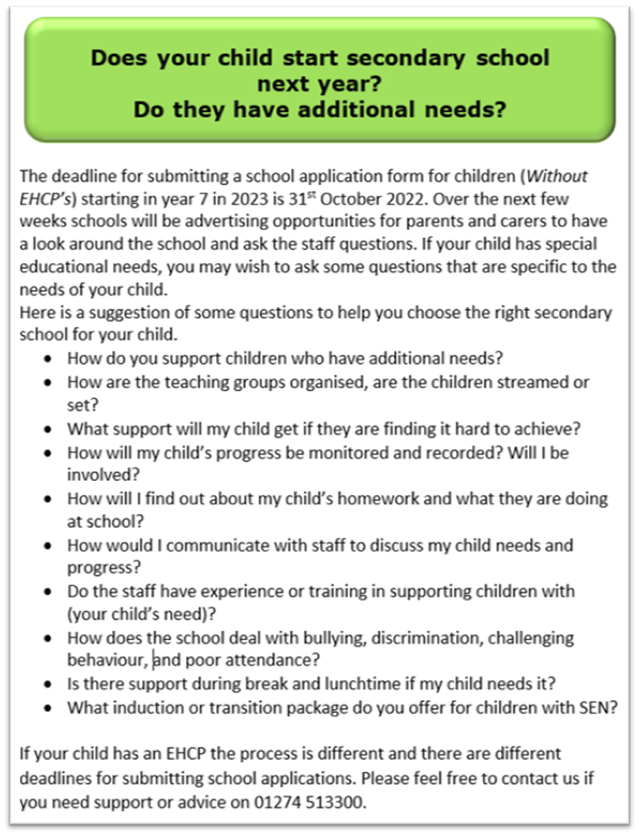- provide access to information and advice which enables parents/carers and their children to make informed decisions
- help to explain the content of reports/letters/draft EHCP
- make telephone calls on parents’ behalf and support them with writing letters
- support parents to arrange meetings with schools and other professionals and attend the meetings with parents if required
- accompany parents/carers on visits to alternative educational settings if required
- liaise with schools, the local authority and other agencies to promote positive relationships with parents, carers and young people
- equip parents, carers, children and young people with the skills and confidence to work with professionals and have their voice heard
- signposting parents, carers, children and young people to other sources of support.
What is SENDIASS?
Are you looking for information, advice or support about matters relating to your child’s special educational needs and/or disabilities (SEND)? SENDIASS offers support to parents and carers of children and young people with SEND (0-25) in the Bradford District. We can also support your child or young person to access the service independently.
We are funded by Bradford Council but the service is managed independently by Barnardos. We provide free, confidential and impartial support – which means we do not take sides and we try to ensure that everyone’s views are expressed and heard. We can offer information advice and support by telephone or email, and by more focused methods depending on individual need.
To make an enquiry you can contact us by telephone on 01274 513300
or you can fill out the contact us form
Alternatively, you can email us your query using the Email referral form and sending it to: bradfordSENDIASS@barnardos.org.uk

We can help with:
- SEN Support
- Exclusions
- Transfers
- Admissions
- Transport
- Appeals
- Mediation
- Complaints
- Personal Budgets
- EHCP
Rationale
Under the Children and Families Act 2014 and SEND Code of Practice 2015 Local authorities must arrange for children and young people with SEN or disabilities for whom they are responsible, and their parents / carers, to be provided with information and advice about matters relating to their SEN or disabilities, including matters relating to health and social care.
In Bradford this service is delivered by Barnardos SENDIASS. Our contract with the Local Authority is informed by the National IASSN minimum standards. Within this contract it states that ‘Service Users will be supported to acquire the skills and knowledge to be able to effectively access services and navigate the SEND system’ and that ‘The Service will develop the resilience and independence of families and local services to enable children and young people with more complex needs to participate actively in their local community.’
There are a number of key service requirements including the provision of Impartial information, advice and support (IAS) on the full range of education, health and social care as defined in the SEND Code of Practice. The Service shall have the capacity to provide advice and support to Service User enquiries through individual face-to-face, telephone and electronic processes and through group sessions and workshops. Support may include: Individual casework/ representation, for those assessed and who meet the criteria.
We are primarily an information and advice service, and our aim is to empower parents, carers, children and young people by providing them with the right information and advice to make informed decisions and take the next steps independently. As such the vast majority of enquiries will be resolved through a one off contact, either over the telephone or via email. Where appropriate we will follow this up by sending out information, group workshops and signposting/referral to relevant services. Service users can contact us in this way as many times as they need. A small percentage of enquiries will require some more intensive ongoing support – individual casework/representation – due to specific needs and vulnerabilities. Due to the increasing demand for our service and in order to keep waiting times to a minimum for vulnerable families, we are implementing strict criteria for this element of the service informed by national guidance for IAS services.
Criteria
In order to be added to the waiting list for individual casework the enquiry must constitute a level 3 or 4 case. The criteria for this is as follows:
- There are multiple or complex issues to be addressed including:
- Exclusions (permanent, unlawful or repeated),
- SEND Tribunals or Disability Discrimination,
- Child over 5 not in full time education (child out of school, part time timetables)
- Ongoing formal complaints including ombudsman
- School refusal (SEMH)
- Or parent has additional needs which significantly affect their ability to manage the situation independently even with advice from the service, such as:
- Learning difficulty
- Ongoing mental health issues
- Communication needs which cannot be supported by short term interventions
- Or service user is a child or young person aged 0-25 with special educational needs or disability who has approached the service directly, and requires support to take part in processes and help to express their views and wishes.
Please note - We do not routinely attend meetings or reviews unless one or more of the above criteria applies.
What if my enquiry does not meet the criteria for individual casework?
If your enquiry does not meet the criteria for individual casework rest assured that the same workers will be offering you information and advice through our duty helpline call back system. All workers undertake the IPSEA legal training, so there is no difference in the quality of advice that you receive. You can choose whether to receive this support via telephone or email, and you may also wish to attend one of our group workshops on topics such as EHCP or SEMH. You are welcome to call back through duty as many times as needed for information on your next steps or any new queries arising, and each time you will be offered tailored individual advice from a qualified worker. We feel strongly that this is the most efficient and responsive way to meet the needs of service users. If at any point a worker identifies that you meet the above criteria for individual casework they will discuss this with you and let you know of the current waiting times for this service.
We recognise that for some cases ‘a little extra’ will be needed to resolve the issue and it may not always be possible to give the best advice in one phone call. For example a worker might need to find out some more information from the school or SEN team for you, or you might need some help filling out a form or reading over a draft and making some changes. For this reason we have a ‘duty plus’ system whereby workers will carry out one off tasks such as making a phone call on your behalf, or booking a slot for you to come into the office to go over some paperwork. This will be assessed by workers on a case-by-case basis and will help us to provide a more responsive service whilst bridging the gap between telephone advice and individual casework.
A separate document is available detailing our service offer and intervention levels. You can download this by clicking HERE.
For more information or to request information advice and support please contact Bradford SENDIASS on 01274 513300.
You can also email us at bradfordSENDIASS@barnardos.org.uk
Facebook: https://www.facebook.com/BradfordSendiass/
Where else can I get help?
Contact: https://contact.org.uk/
IPSEA: https://www.ipsea.org.uk/
Local offer: https://localoffer.bradford.gov.uk/
Useful contacts: https://barnardossendiass.org.uk/bradford-sendiass/useful-contacts/
We provide a range of regular parent workshops on EHCP and SEN Support, in addition to one off topics. Groups are kept small with a maximum of 8-10 participants for your comfort and to ensure you get the most out of the session. All workshops include a question and answer session with a caseworker which allows you to ask questions specific to your situation.
Due to current Covid19 restrictions, for the time being we are running all parent workshops virtually via zoom (instructions on how to access and all handouts will be emailed beforehand).
For more information and to book see our Eventbrite page: https://www.eventbrite.co.uk/o/bradford-sendiass-26865508299
Would you be interested in being part of a new parent steering group?
We run a termly parent steering group made up of current and previous service users. If you are a parent of a child or young person with SEND who has an interest in helping us to monitor, develop and improve our service we would love to hear from you. Your views and experiences are key to ensuring that we are meeting the needs of parents, carers, children and young people. For more information please see leaflet below, or contact Debbie Jowett on 01274 513300.
We support parents with a variety of needs including those with English as a second language and those with limited English. We have Staff and Volunteers and Admin who can speak Urdu and Punjabi, and you can request an Urdu speaking worker when making a referral. We will always try to accommodate these requests, but where this is not possible we use local translation and interpreting company Enable2 to ensure that we can accommodate all local languages.
Some of our information sheets are available in community languages including Czech, Slovak and Polish. We are working on having our information sheets into Urdu and hope to have these available soon.
Polish
School Exclusion in England - Polish
Preparing for Meetings with School - Polish
Slovak
School Exclusion in England - Slovak
Preparing for Meetings with School - Slovak
Czech
School Exclusion in England - Czech
Tips when choosing your child or young person's next school
You can download a copy of these information sheets by clicking the relevant link below:
Top tips when looking for a Primary school
Top tips when looking for a Secondary school
We also have created some TOP TIPS for Returning to School!
SENDIASS TOP TIPS for parents of children with SEND on going back to school.
Going back to school after a long summer break can be exciting for children, however it can also be a very anxious time of the year for children and parents.
Here are some top tips to consider when preparing your children to return to school:
- Routine - Start getting your child/young person back into a routine. For example, ensure that wake up and bedtimes are the same as you prepare to return your child/yp to school.
- Talk about school - Talk to your child about school, including fun activities, teachers, playtimes, etc. Ask what things they are looking forward to, are there any stories from summer they are looking forward to sharing with friends?
- Visit the school websites with your child and look at pictures of the school. Look at the gallery on the school’s website if available, talk about what is happening in the pictures.
- Have a practice journey - If possible, take a trip past the school grounds and talk about the different outdoor activities that they will be engaging in once they return to school. If your child will be using public transport or school bus, run through where they should go and what they need to know. You could even take turns pretending to be the driver, child or young person and showing your pass etc.
- Countdown to school calendar - Make a return to school count down calendar and count down the number of days left before the start of school. You could create other visual resources to support the routine of getting ready, or to prepare your child for the school day.
- Be Prepared - Start buying school supplies, such as uniform (if required), school bags and shoes beforehand to avoid unnecessary stress and anxieties
- Face any worries - If your child/yp can express their anxieties and worries about returning to school have an open discussion about them. Give them the opportunity to talk about their feelings. Some children respond better to creative activities such as drawing a picture or making up a story about the first day of school.
- Stay Positive and stay calm - Speak positively about school and returning to school. Try not to express or show your own anxieties or fears to your child/yp. If you have any worries about transition back to school you could contact parent support groups such as SENDIASS, PFBA or AWARE for advice and support. Some schools also have a parental engagement worker or pastoral teacher who could help.
- Be observant to any changes in your child’s/young person’s behaviour. If you notice any changes in your child/yp behaviour speak to them and seek support if required. You can always contact the class teacher or SENCO if you have any new concerns about how your child will cope with school.
- Contact SENDIASS if you need any information, advice and support on specific difficulties with your child’s education. Here are some examples of common issues and advice:
- Your child has SEN but does not have an EHCP and you are unsure what support will be in place in the new school year. Ask to speak to/meet with the SENCO and/or class teacher to discuss your child’s needs and what support they will be providing. Each school will record things slightly differently, but they should be able to explain whereabouts on the SEN register your child is, any areas that they are behind age related expectations and what support is planned for your child. Remember that it takes time to review the support effectively and the school will want to have chance to see how the support planned is working, perhaps over a term or half term, before making further changes or applying for EHCP. This graduated approach, the ‘assess-plan-do-review’ cycle is good practice and ensures that your child’s needs and support are being monitored.
- Your child has an EHCP but you are not confident about the named provision. Again, the first step is to speak to the SENCO at the new school about how they intend to provide the measures in the EHCP, they may be able to reassure you. As above you may need to give your child time to settle and the school time to try and support your child. As the EHCP is a legal document the named school must provide the support which is specifically written in there. Remember though if you give it a try and no progress is made, or if you, your child, or the school feel that the child’s needs are not being met you can always request an interim review and it may be possible to change provision at a later date if the named school proves to be not right for your child so don’t panic.
- We are aware of some families who are awaiting a final EHCP plan naming a school. We understand that this can be a very stressful time for families as the new term approaches. The best advice is to stay in regular contact with your SEN officer at the Local Authority (Bradford Council) to ensure that you are up to date with any developments and that your views and those of your child are taken into account. Until a new school is named on a plan, the responsibility to provide your child’s education and support remains with the school named on the most recent finalised EHCP, so it is also worth contacting them to keep them up to date and discuss how that education and support will be provided in the meantime. If you think you may need to appeal a decision you can also contact SENDIASS for advice.
Informative Videos
The War in Ukraine
You might be wondering how to talk to your child about the war in Ukraine. Children often want to talk about topics they do not understand and sometimes adults find it hard to explain it without causing unnecessary worry.
Here are some useful links to tips and advice on talking about issues with your children:
We also have some links that your child or young person can access themselves if they want to. Look under the children and young people tab or click here to go straight there!


